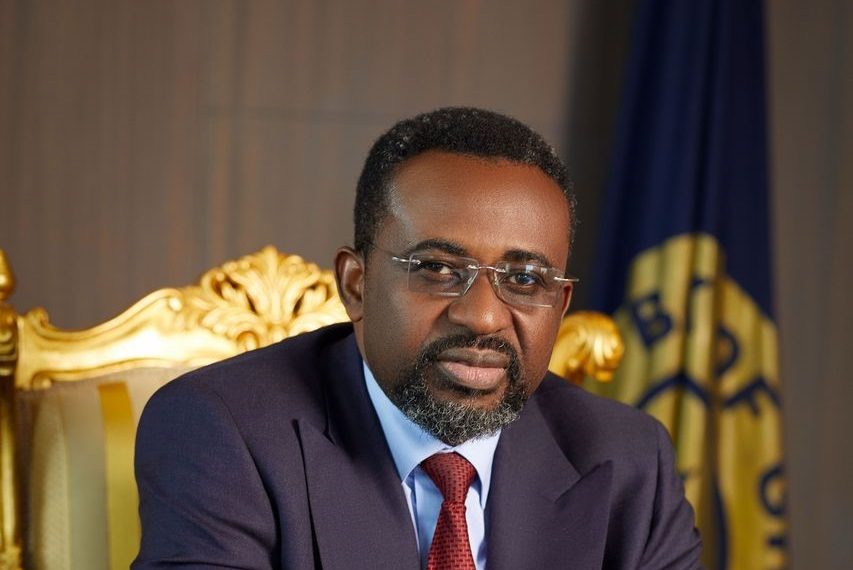adverts
In a bold move to address Ghana’s staggering infrastructure financing gap and promote financial inclusion, the Bank of Ghana is exploring the introduction of Sukuk bonds—a Sharia-compliant, asset-backed financial instrument that has gained global traction as an ethical alternative to conventional debt.
Governor of the Bank of Ghana, Dr. Johnson Asiama, announced the plan during a high-level stakeholder engagement with religious leaders in Accra, emphasising that Sukuk bonds could serve as a sustainable financing mechanism for Ghana’s development needs, especially in the face of mounting fiscal constraints.
“In the face of fiscal constraints, innovative instruments such as Sukuk bonds offer a credible alternative to conventional debt,” Dr. Asiama said.
adverts
According to the United Nations, Ghana’s infrastructure financing deficit stands at approximately US$37.9 billion annually—a challenge that the governor believes Sukuk could help alleviate. Unlike traditional bonds, Sukuk structures are interest-free and backed by tangible assets, aligning with the principles of Non-Interest Banking and Finance (NIBF).
Dr. Asiama highlighted the success stories of South Africa and Nigeria as compelling models. South Africa’s 2014 Sukuk issuance of US$500 million was oversubscribed by four times, and its 2023 follow-up issuance raised US$1.1 billion. Nigeria has similarly mobilised US$2.37 billion since 2017 through its sovereign Sukuk program, leading to the construction or rehabilitation of over 4,100 km of roads and nine major bridges.
“Sukuk is not an experiment. It is a proven instrument that has delivered real infrastructure and inclusive growth across Africa and beyond,” he added.
The introduction of Sukuk forms part of Ghana’s broader agenda to establish a non-interest banking and finance system, a move Dr. Asiama says is both ethical and strategic. He noted that globally, the NIBF industry surpassed US$5.5 trillion in total assets by the end of 2025, with countries like the UK, Malaysia, Singapore, and Kenya actively leveraging it to diversify their financial ecosystems.
“NIBF avoids the moral hazards of debt accumulation and focuses on partnerships, profit-sharing, and real-economy linkages. It is a system of finance that resonates deeply with Ghanaian values and our vision of shared prosperity,” he said.
The forum with religious leaders forms part of a nationwide consultation process to ensure cultural relevance and ethical grounding in the rollout of NIBF. Dr. Asiama lauded the clergy’s role in financial literacy, calling them critical partners in the transformation of Ghana’s financial landscape.
“Today’s engagement is not merely symbolic—it is a call to action,” he said. “We need the clergy to become ambassadors for ethical finance.”
He urged them to help demystify non-interest banking, correct misconceptions, and provide moral leadership to ensure its successful adoption.
Dr. Asiama outlined four key objectives for Ghana’s NIBF journey:
- Demystify artificial intelligence and ethical finance in public discourse and policymaking.
- Explore global and regional best practices to inform a localised and impactful implementation.
- Address ethical and institutional challenges such as data sovereignty and algorithmic bias.
- Align with Ghana’s strategic economic agenda, including a revised National AI Strategy and the upcoming National NIBF Policy.
Unlike traditional finance, NIBF prohibits speculative lending, interest-based transactions, and the financing of industries deemed unethical, such as alcohol, gambling, adult entertainment, and weapons manufacturing.
“Every transaction must be backed by tangible assets. This is finance tied directly to the real economy,” Dr. Asiama stressed.
He described NIBF as a system rooted in economic justice, transparency, and social responsibility—values that transcend religion and serve the national good.
The governor concluded with an appeal for unity and vision:
“The success of NIBF in Ghana depends not just on policy and regulation, but on our collective ownership. Let us build a financial system that is inclusive, ethical, and transformational.”


